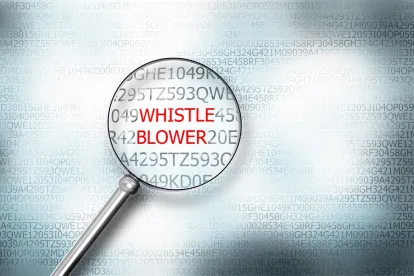The ARB recently affirmed a motion for summary decision against a Complainant claiming retaliatory discharge under SOX, finding that he failed to demonstrate that he engaged in protected activity and that the Company would have discharged him in the absence of any protected activity given his misconduct . Latigo v. ENI Trading & Shipping, 2018 DOL Ad. Rev. Bd. LEXIS 15, Arb. No. 16-076, ALJ No. 2015-SOX-031 (Mar. 8, 2018).
Complainant, a trading analyst, was hired by ENI Trading & Shipping (“Company”) to analyze and reconcile crude oil production volumes and sales. In October 2014, Complainant allegedly expressed concerns to his supervisor about a discrepancy between the oil volume measured and the amount invoiced to third parties, stating that “the missing amount was not accounted for in [the Company’s] profit and loss statement, and that profits were overstated.” Complainant’s supervisor responded that there was no unaccounted-for discrepancy since the imbalance had been accruing as a future payable.
At or around the same time, an employee complained to the Company that Complainant had been blackmailing and harassing a female co-worker, who had attempted suicide due to the alleged harassment. Outside counsel investigated the complaint, concluded that Complainant had engaged in harassing behavior and recommended termination of his employment. Shortly thereafter, the Company terminated Complainant’s employment.
Complainant then filed a complaint with OSHA alleging whistleblower retaliation under SOX. After OSHA dismissed the Complaint, Complainant appealed to the ALJ. The Company moved for summary decision, arguing that Complainant failed to show that he engaged in protected activity because while he reasonableness of his belief “ceased . . . when Complainant’s supervisor explained that the discrepancy did not in any way impact” the Company’s profit and loss statement. The Company further argued that Complainant’s alleged protected activity did not contribute to his discharge and that it would have taken the same action if Complainant had not engaged in protected activity because the Company’s acting president had no knowledge of the alleged protected activity until the moment he suspended Complainant, and instead based his decision to suspend and terminate Complainant solely on the results of the independent investigation of harassment. In response, Complainant alleged that his co-worker and the Company were colluding and hacked his computer “to prevent [Complainant] from reporting [the Company] to OSHA and federal securities authorities.”
The ALJ granted the Company’s motion for summary judgment, finding that Complainant failed to show he engaged in protected activity because after learning that the alleged discrepancy on the profit and loss statement was not actually a misstatement, he never voiced continued concern or offered any other affirmative evidence to demonstrate anything to the contrary. The ALJ also found that Complainant failed to establish causation because in response to the substantial evidence from the independent investigation into his harassing behavior, Complainant relied only on his own unsupported allegations to demonstrate that his alleged protected activity was a contributing factor in the Company’s decision to terminate his employment. In addition, the ALJ found that the Company demonstrated that it would have terminated Complainant even if he had not engaged in protected activity because he failed to provide any affirmative evidence to demonstrate that the independent investigation was inaccurate with respect to his harassing behavior.
The ARB affirmed, finding that the Company’s basis for its termination decision was supported by the evidentiary record. As the ARB explained, Complainant failed to “provide any affidavits, sworn statements, or other admissible evidence to rebut the clear and convincing evidence [the Company] adduced in support of its affirmative defense.” The ARB did not make a determination as to the ALJ’s protected activity analysis.
Implications
This is a welcome decision for employers because it shows that the ARB is apt to affirm ALJ grants of summary judgment where complainants may be using whistleblower provisions to shield themselves from their own misconduct.





 />i
/>i

